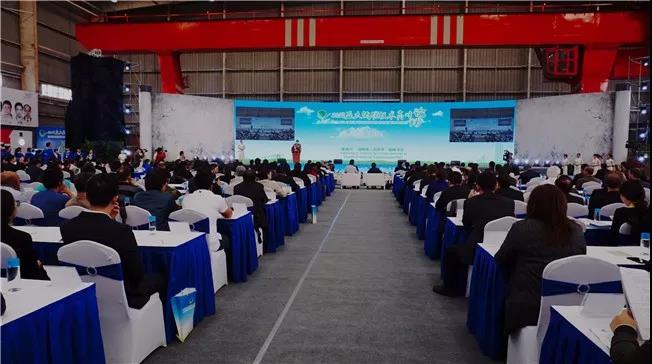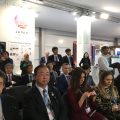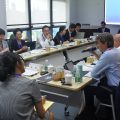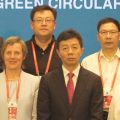Circular Cities: Creating Low Carbon Urban Environments

The 2018 Asia-Pacific Forum on Low Carbon Technology was co-organized by the Asian Development Bank and the Hunan Provincial Government on 24-26 October 2018. Gathering various stakeholders, the Forum aims to support and promote substantive cooperation in low-carbon city development and high-technology investment, while encouraging deep discussion among participants through parallel sessions, bilateral meetings, and technology roadshows.
With the new flagship Green Circular Cities Coalition program, ICLEI East Asia worked with the Asian Development Bank and co-organized the parallel session Circular Cities: Creating Low Carbon Urban Environments as a part of the Forum. Guided by the circular economy approach where resources flow in a closed-loop, rendering all materials with values, model cities provide visions for emerging urban centers and restoration blueprints for existing cities. Technology advancement has allowed for numerous loops of material manipulation or restoration at different levels of the resource cycle.
The session highlighted best practices and challenges Asian cities have encountered in shifting towards a circular economy. The two main objectives included discussing the strategic implementation of circular economy at city-wide levels through the experience of ICLEI’s Green Circular Cities Coalition program and partners including the China Association of Circular Economy, and revealing sector-specific innovative solutions on transportation, waste management, and electricity systems in China, Germany, and India. All presentations from this session are available here.
Following the presentations, the panel discussion section focused on the challenges of the circular economy. Experts mutually agreed that the main barrier lies in the government’s lack of understanding of the topic and thus failure to apply matured and integrated solutions to the market. Hence, the practitioners strongly urged to increase government officials’ awareness of the topic through various channels such as city networking advocacy, circular city programs, and dialogues between government officials and enterprises.
On this occasion, the session moderator Stephen Peters, senior waste-to-energy specialist of the Asian Development Bank, also emphasized proper carbon pricing to be an effective means which to help reflect the real economic benefits of circular practices. According to him, many experts consider carbon price per ton to be at least over a hundred if not several hundred US dollars; nevertheless, the main types of carbon pricing schemes at the moment are keeping prices well under values justified by experts, and clearly should be addressed.
In conclusion, the Asian Development Bank stressed its intention to facilitate frequent circular economy practices exchange in the private sector, achieving knowledge expansion that can influence government policies on circular development. ICLEI East Asia also agrees with this vision and sees the private sector as the driving hub of innovation. In fact, business engagement has been included as a core component of ICLEI’s Green Circular Cities Coalition and will act as a critical solution provider to the participating local governments.




